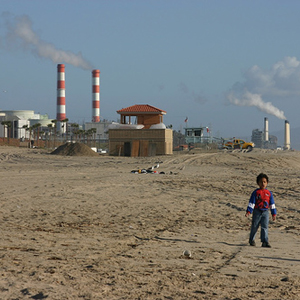Environmental toxins may impact fertility of grandkids as well
 Washington, May 26 : A new study has shed light on how environmental toxicants can have significant impact on fertility.
Washington, May 26 : A new study has shed light on how environmental toxicants can have significant impact on fertility.
The study led by Rebecca M. Steinberg and colleagues provide evidence that adverse reproductive effects of toxicants may extend not only to the children of exposed individuals, but also to the next generation.
During the study, pregnant rats were treated with a mixture of polychlorinated biphenyls (PCBs).
The findings revealed that the reproductive markers were disrupted not only in the female offspring of these rats, but also in the “grand offspring,” which are derived from oocytes present in fetuses of the treated females.
Changes in the second generation included blunting of preovulatory LH release, reduced progesterone concentrations and reduced uterine weights.
The use of low doses of PCBs in this study increases the potential relevance of these findings to reproductive health.
The study is published online in BOR-Papers In Press 27 February 2008. (ANI)